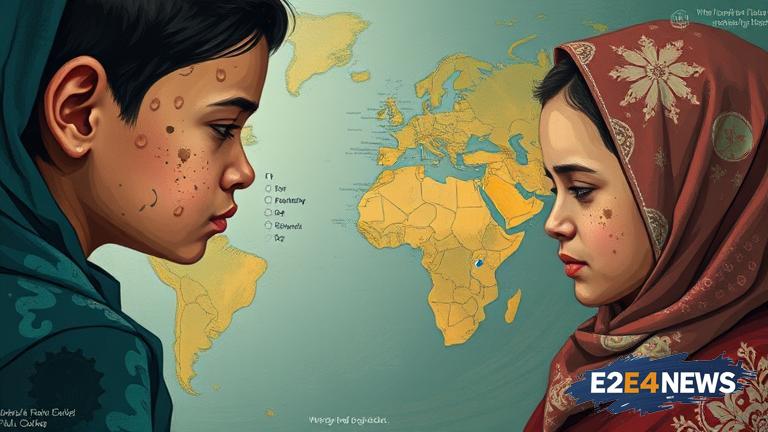The Arab and Muslim world is facing a significant challenge in the form of inbreeding, which is resulting in a high incidence of genetic disorders. This practice, often driven by cultural and religious traditions, is causing widespread concern among health experts and policymakers. Inbreeding, also known as consanguineous marriage, refers to the marriage between close relatives, such as first cousins. While it is not unique to the Arab and Muslim world, the prevalence of this practice is particularly high in these regions. According to various studies, the rate of consanguineous marriages in some Arab countries can be as high as 50-60%. This has led to a significant increase in genetic disorders, such as thalassemia, sickle cell anemia, and cystic fibrosis. The consequences of inbreeding can be devastating, with many children born with severe disabilities or life-threatening conditions. In addition to the human toll, inbreeding also has significant economic and social implications. The cost of treating genetic disorders can be prohibitively expensive, placing a huge burden on already strained healthcare systems. Furthermore, the social stigma associated with genetic disorders can lead to discrimination and marginalization of affected families. Despite these challenges, many Arab and Muslim countries have been slow to address the issue of inbreeding. In some cases, cultural and religious traditions have been cited as a barrier to change. However, there are signs that attitudes are beginning to shift. In recent years, several Arab countries have launched public awareness campaigns to educate people about the risks of inbreeding. Additionally, some governments have introduced policies to discourage consanguineous marriages, such as mandatory pre-marital genetic testing. While these efforts are a step in the right direction, much more needs to be done to address the scale and complexity of the problem. Health experts and policymakers must work together to develop effective strategies to reduce the incidence of genetic disorders and provide support to affected families. This will require a multifaceted approach that takes into account cultural, social, and economic factors. It will also require a commitment to education and awareness-raising, as well as the development of specialized healthcare services to treat genetic disorders. Ultimately, addressing the issue of inbreeding in the Arab and Muslim world will require a fundamental shift in cultural and social attitudes. It will require a recognition that the practice of consanguineous marriage is not only harmful to individuals but also to communities and societies as a whole. By working together, it is possible to reduce the incidence of genetic disorders and create a healthier, more prosperous future for all. The issue of inbreeding is a complex one, and there are no easy solutions. However, by acknowledging the problem and working together to address it, we can make a significant difference. The first step is to raise awareness about the risks of inbreeding and the importance of genetic diversity. This can be achieved through public education campaigns, as well as through community outreach and engagement. Additionally, policymakers must take a proactive approach to addressing the issue, by introducing policies and legislation that discourage consanguineous marriages. This can include measures such as mandatory pre-marital genetic testing, as well as counseling and support services for couples who are considering marriage. Furthermore, healthcare systems must be equipped to provide specialized care and treatment for individuals with genetic disorders. This will require significant investment in healthcare infrastructure, as well as the training of healthcare professionals. By taking a comprehensive and multifaceted approach, it is possible to reduce the incidence of genetic disorders and improve the health and wellbeing of individuals and communities. The issue of inbreeding is not just a health issue, but also a social and economic one. It has significant implications for the development and prosperity of communities and societies. By addressing this issue, we can create a brighter future for all, and help to build healthier, more resilient communities. In conclusion, the issue of inbreeding in the Arab and Muslim world is a complex and multifaceted one, requiring a comprehensive and sustained response. By working together, we can raise awareness, reduce the incidence of genetic disorders, and create a healthier, more prosperous future for all.





